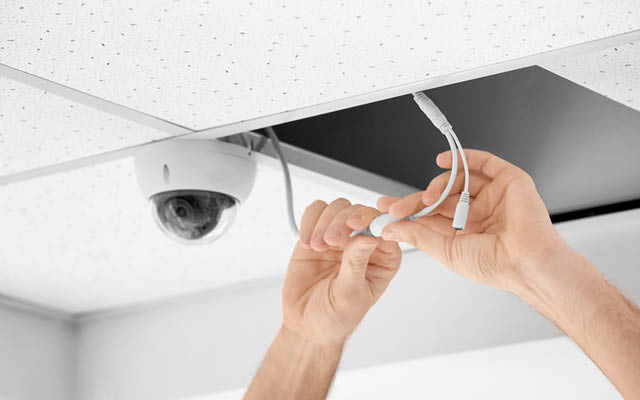I like to think of myself as a guy who values a little privacy. In my home, you’ll find none of those creepy “personal assistants” that Silicon Valley geniuses invented to collect data on consumer behavior, and you’d have to dig pretty deep into my dusty Facebook page to find my most recent post. Nobody needs to know what I ate for breakfast.
But when I think of vulnerable nursing-home residents and the abuse many of them have suffered at the hands of staff, I can see why family members might be inclined to push the boundaries on the whole privacy thing and set up a camera in their loved one’s room to monitor the activity there. The practice, in fact, has become so common that seven states have passed legislation to smooth over any legal bumps that family — and facilities — may encounter.
The gray zone, however, extends beyond the law, notes Clara Berridge, PhD. “Lots of ethical issues are at play, and it raises the question of privacy’s role in our lives.”
Berridge, an assistant professor of social work at the University of Washington, polled more than 270 nursing homes and assisted-living facilities in 39 states to determine the extent to which surveillance cameras have spread and how they’ve affected the residents. The responses, published in AJOB Empirical Bioethics, were not particularly surprising.
Only about 11 percent of the facilities that responded had installed cameras, but those using them reported that 24/7 surveillance raises plenty of thorny questions: How do you balance its deterrent value against a resident’s desire for privacy? If family members persuade a loved one to allow a camera installation, do they also need consent from his or her roommate? Is the camera owner responsible for protecting the video feed from potential hackers? Is it legal to disable or cover the camera under certain circumstances?
And, while surveillance can deter abuse and offer information that may improve patient care, Berridge and her team concluded that its liabilities far outweigh its benefits. She’d rather see better long-term-care funding options for the elderly so nursing homes and assisted-living facilities can hire more staff and pay them a living wage. Or help geezers like me live out their years in the camera-free comfort of their own homes.
In Washington state, for example, lawmakers have passed a measure creating a publicly funded long-term-care insurance plan. Supported by a .58 percent payroll tax, the program would offer lifetime benefits of $36,500 to cover everything from professional caregiving and equipment to transportation services and dementia education. The legislation currently awaits Gov. Jay Inslee’s signature.
Meanwhile, Berridge will continue to study ways that technology can help adult children better understand the needs of a homebound parent who’s suffering from dementia. Those tools, she notes, could involve a webcam, but it wouldn’t be focused on deterring abuse as much as offering family caregivers some clues about the parent’s activities and challenges while protecting his or her privacy.
“This tool,” she explains, “will be the first of its kind to support families to navigate the complex technology landscape and guide them in balancing their perceived need for ongoing surveillance and the older adult’s dignity and wishes.”
I suspect that by the time I reach my dotage, Berridge or somebody else will have figured this out and our kids will be able to spy on me and My Lovely Wife to their heart’s content while we wander around the house looking for the car keys. But I doubt they’ll be so inclined. The entertainment value would be pretty negligible, after all, and they may find tedious the sight of their father staring plaintively into the camera every 10 minutes asking, “Why don’t you ever call?”




This Post Has 0 Comments